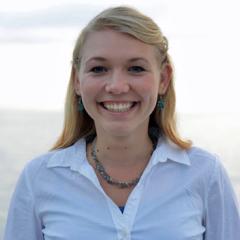About Natalya's Work
Natalya Gallo is a PhD candidate in biological oceanography at the Scripps Institution of Oceanography at UCSD and is an NSF graduate research fellow and a fellow of the Center for Marine Biodiversity and Conservation. Her dissertation research focuses on naturally low-oxygen environments called upwelling areas that have steep gradients in oxygen, temperature, and pH with depth and can serve as proxies for future climate conditions. She studies how low oxygen conditions influence the composition, diversity, density, and trophic ecology of demersal fish communities to predict future ecosystem impacts of ocean deoxygenation. She has conducted research in the California Current Ecosystem, in the Gulf of California, and off of Chile and has published a global review on the ecology and evolution of demersal fish communities in oxygen minimum zones. She has also actively worked to raise awareness about ocean deoxygenation for public, academic, and policy-making audiences by giving presentations and producing written fact sheets and informational videos. Prior to joining Scripps, she received her B.S. in Ecology and Evolutionary Biology from the University of Maryland, received the Morris K. Udall Scholarship, and conducted cnidarian bleaching research at Stanford University.
Natalya is passionate about improving the interface between ocean scientists and policy-makers and in 2013 co-founded the group Ocean Scientists for Informed Policy (oceanscientists.org). She has actively been involved in topics relating to ocean and climate issues and has participated in four international UN climate negotiations and the UN Oceans conference, and played a role in the inclusion of the ocean in the text of the Paris Agreement. Her thesis also includes an interdisciplinary chapter on how countries are including marine ecosystems in their national climate pledges under the Paris Agreement. Since managing ocean health is a global, multi-stakeholder problem, she is interested in exploring international attitudes towards ocean and climate issues and the role of science and scientists in informing ocean policy.


